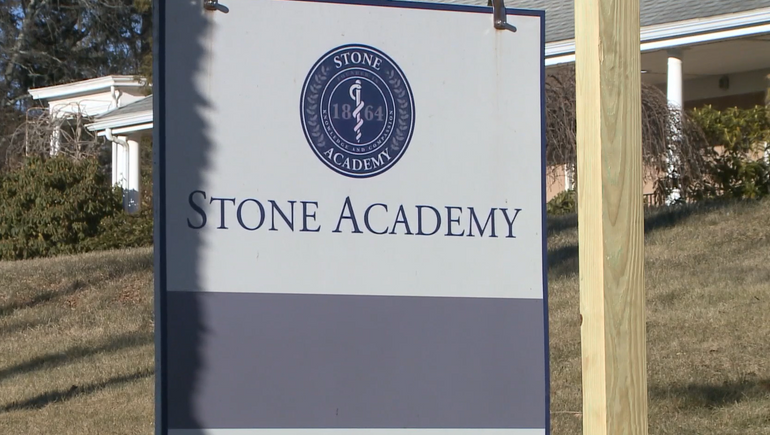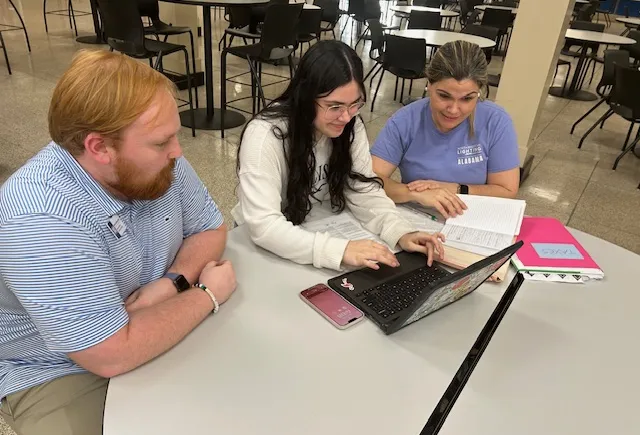[ad_1]
A dozen policy advocates and higher education groups are calling on the National Council for State Authorization Reciprocity Agreements, an organization that controls an important interstate distance learning pact, to bake more consumer protections into its policies.
NC-SARA was founded in 2013 with the goal of easing regulatory burdens for online colleges operating across state lines. The private nonprofit controls a multistate reciprocity agreement that enables online colleges to avoid having to seek separate authorization for each state where they enroll students.
The organization’s power over online education is vast — every state except for California is a member. California has resisted the pact over concerns that joining would make it unable to hold out-of-state for-profit colleges accountable.
Around 1,100 public colleges participate in the state reciprocity agreement, along with around 1,000 private nonprofits and almost 200 for-profits. In fall 2021, some 4.2 million students were enrolled in online programs offered by these colleges.
But policy advocates have long complained that NC-SARA sets a low bar for consumer protections, leaving students vulnerable to predatory colleges. Moreover, they argue that the organization’s rules for participating in the compact undermine states’ abilities to apply their own consumer protection laws to out-of-state colleges operating within their borders.
NC-SARA recently adopted new procedures for making policy changes that are meant to make the process more transparent. The organization called on stakeholders to propose policy changes by early February.
They will have the opportunity to present their proposals during public forums later in the year, and NC-SARA’s board members are slated to vote on policy recommendations in October.
The group of influential organizations and policy advocates, including The Century Foundation, the Center for American Progress, and The Institute for College Access & Success, submitted a slew of proposals in January that are intended to increase consumer protections. They include allowing states to enforce their own laws against colleges participating in the compact, applying more stringent standards to for-profit colleges and increasing states’ representation on NC-SARA’s board.
Melanie Booth, NC-SARA’s vice president for educational programs and engagement, said the organization will not comment on any of the proposals until they are reviewed by the organization’s regional steering committees.
The proposals come at a time of increased scrutiny around online programs, especially those offered by for-profit colleges. But criticism has also mounted against nonprofit colleges, many of which contract with for-profit companies to help build their online offerings.
Although the policy advocates’ ideas have been raised before, those involved in submitting the new proposals to NC-SARA are hopeful that recent moves by the organization — including a push for more transparency — will make board members more amenable to the changes.
“I’m very optimistic,” said Carolyn Fast, a senior fellow at The Century Foundation. “This seems like a potentially good time for changes to be considered and maybe even enacted because this is the first time that the NC-SARA board has launched this kind of a process, where they’re really working to get public engagement, transparency and different views.”
A ‘two-tiered’ system for students
To participate in the interstate compact, colleges must meet NC-SARA’s standards. However, in their policy proposal, the groups argued that these standards “are minimal, and offer inadequate protections to online students.”
Some states have stronger consumer protections for college students than what’s required under the interstate compact. But the agreement prohibits members from enforcing these laws on out-of-state colleges enrolling online students located within their state lines.
This, in turn, created a “two-tiered” system, the groups wrote, where students attending college in person or attending an online institution headquartered in their state may be afforded more consumer protections than others.
“It’s not something that’s transparent to students,” Fast said. “When a student is signing up for a program, they don’t necessarily know that they are going to have fewer consumer protections than other students that are in their state because of this agreement.”
A common view is that a state reciprocity agreement is intended to ease online education access by waiving state laws, Fast said.
But she argued there are more nuanced ways to allow online colleges to cross state lines that don’t undercut student protections.
“You could waive those laws that have to do with getting initial authorization, like an application fee. You could waive the need to submit an application to multiple states,” Fast said. “You don’t have to have people waive all of their consumer protection.”
Handing states more power
The groups called out another major problem they see with NC-SARA: States do not have full control over setting the interstate compact’s standards. That’s because the organization’s board — which includes representatives of institutions and accreditors — has veto power over proposed changes to the agreement.
“States do not hold the majority of positions on the Board, and therefore lack control over the Board,” the proposal says.
The groups argue that each board member should either be representatives of member states or regional compacts, which are groups that help states work cooperatively on their higher education goals.
Barmak Nassirian, vice president for higher education policy at the advocacy group Veterans Education Success, agrees that the board composition takes power for overseeing the compact away from the states and delegates it to others.
“Not just to anybody off the street,” he added. “It’s been delegated to the very entities that the function is supposed to oversee.”
Even if NC-SARA’s board members ultimately veto the proposals, higher education advocates say they will have other opportunities to improve consumer protections for students.
Earlier this year, the Education Department said it is planning for a round of negotiated rulemaking, in which different higher education groups and stakeholders come together to craft new regulations. State authorization will be one of the topics up for discussion.
“That’ll be another venue to elevate these issues,” said Kyle Southern, associate vice president for higher education quality at TICAS. “If we can’t push for stronger student protections either through SARA’s board or at the state level, hopefully having a more robust set of federal regulations can effectively bolster those protections for students.”
[ad_2]
Source link









